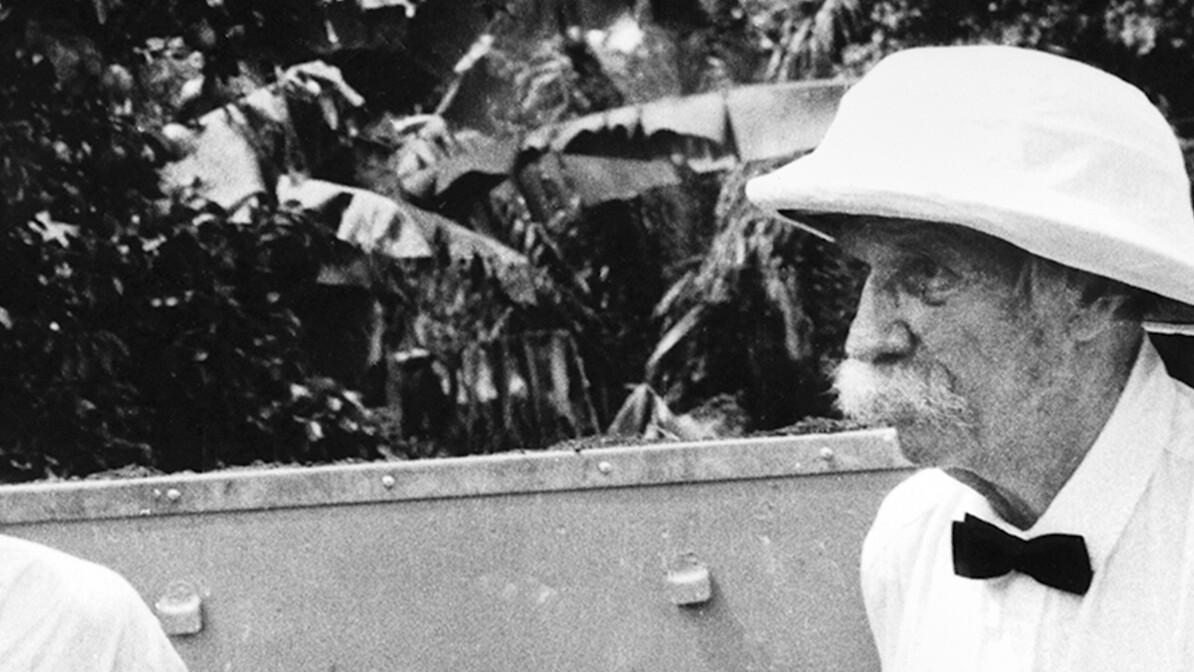
Albert Schweitzer ‘Reverence for Life’ – Medical Missionary to Africa (Part 1)
 Albert Schweitzer was born January 14, 1875, in a village in Alsace, Germany. The son of a Lutheran Evangelical pastor, he won acclaim at playing the organ. He earned doctorates in philosophy and theology.
Albert Schweitzer was born January 14, 1875, in a village in Alsace, Germany. The son of a Lutheran Evangelical pastor, he won acclaim at playing the organ. He earned doctorates in philosophy and theology.
Schweitzer was pastor of St. Nicholas Church. He was also the principal of St. Thomas College and a professor at University of Strasbourg. Then, at age 30, his life changed.
He read a Paris Missionary Society article of the desperate need for physicians in Africa. To everyone’s dismay, he enrolled in medical school and became a medical missionary.
In 1912, he married a nurse, Helene Bresslau. The next year they traveled to west central Africa, and founded a hospital in the jungle village of Lambarene, Gabon. After first using a chicken hut as their medical clinic, they erected a hospital building of corrugated iron in 1913. In the first 9 months they saw over 2,000 patients.
World War I started, and the conflict between France and Germany went global, reaching into Africa. The Schweitzers were arrested and put under French military supervision, then taken to a prison camp in France.
After the war, they moved to Alsace-Lorraine, a border area between France and Germany, where their only child was born, a daughter, Rhena. Saving their money, Helene stayed back with their daughter, Rhena, and Albert returned to Gabon in 1924. Traveling back and forth several times, they rebuilt the hospital.
They served uninterrupted throughout World War II, being joined by additional staff. The patients they treated suffered from:
- malaria,
- fever,
- dysentery,
- severe sand flea bites,
- tropical eating sores,
- leprosy,
- craw craw sores,
- sleeping sickness,
- yaws (tropical infection of skin & bones),
- nicotine poisoning,
- necrosis,
- heart disease,
- chronic constipation,
- strangulated hernias, and
- abdominal tumors.
He helped Mbahouin tribes and pygmies who lived in fear of cannibalism.
Albert Schweitzer spoke in Europe and in 1949 visited the United States. Once he was asked “Why are you traveling in the 4th class?” He replied “Because there is no 5th class.”
Once on a train two schoolgirls asked him, “Dr. Einstein, will you give us your autograph?” Not wanting to disappoint them, he signed: “Albert Einstein, by his friend Albert Schweitzer.”
His daughter, Rhena, became a medical technician and married an American doctor, David C. Miller, who was serving at the African hospital – Albert Schweitzer Hospital. Albert Schweitzer joined Albert Einstein in warning the world of the dangers in developing nuclear weapons. In 1952, Dr. Schweitzer was awarded the Nobel Peace Prize. He used the prize money to build a leper colony.
Schweitzer embraced a prolife philosophy, explaining:
“For months on end, I lived in a continual state of mental agitation. Without the least success I concentrated – even during my daily work at the hospital – on the real nature of the affirmation of life and of ethics … I was wandering about in a thicket where no path was to be found. I was pushing against an iron door that would not yield. In that mental state, I had to take a long journey up the river … Lost in thought, I sat on deck of the barge, struggling to find the elementary and universal concept of the ethical that I had not discovered in any philosophy. I covered sheet after sheet with disconnected sentences merely to concentrate on the problem. Two days passed. Late on the third day, at the very moment when, at sunset, we were making our way through a herd of hippopotamuses, there flashed upon my mind, unforeseen and unsought, the phrase: ‘Ehrfurcht vor dem Leben’ (‘Reverence for Life’). The iron door had yielded. The path in the thicket had become visible.”
Schweitzer’s words stand in contrast to utilitarian cultures and political party platforms advocating euthanasia, organ harvesting, honor killings, and abortion.
At the beginning of World War II, The New York Times reported October 10, 1933, on the utilitarian views of socialized medicine in Germany:
“NAZI PLAN TO KILL INCURABLES … The Ministry of Justice … explaining the (National Socialist Workers Party) … intentions to authorize physicians to end the sufferings of the incurable patient … The Catholic newspaper Germania hastened to observe: ‘The Catholic faith binds the conscience of its followers not to accept this method’ … In Lutheran circles, too, life is regarded as something that God alone can take … Euthanasia … has become a widely discussed word in the (Third) Reich … No life still valuable to the State will be wantonly destroyed.”
In contrast to this utilitarian view, Dr. Schweitzer stated: “Ethics is nothing other than Reverence for Life. Reverence for Life affords me my fundamental principle of morality, namely, that good consists in maintaining, assisting, and enhancing life, and to destroy, to harm or to hinder life is evil.” …
…
Featured photo credit: Evelyneroy / Telmanyi demonstriert Schweitzer seinen Rundbogen / CC BY-SA 4.0
Interior photo credit: Gert Chesi / Albert Schweitzer mit Gert Chesi in Lambarene 1964 / CC BY-SA 4.0
Trending Now
Sign up today for your Inspiration Today Daily Newsletter
Supercharge your faith and ignite your spirit. Find hope in God’s word. Receive your Inspiration Today newsletter now!
William Federer
William Federer is a nationally known speaker, best-selling author, and president of Amerisearch, Inc., a publishing company dedicated to researching America's noble heritage. Bill's American Minute radio feature and his Faith in History television broadcast can be viewed daily across America and on the Internet. Learn more at amerisearch.net
Related Articles
April 15, 2024
I Want to Live
What does God do with a good ol’ southern boy taken captive by the demon of alcohol? He meets him…
April 9, 2024
Pregnancy and Infant Loss: Helping Grieving Families Part 1
When you consider that one in four American women experience the grief of…
April 8, 2024
Prayers for Healing
An unexpected troublesome medical diagnosis, a strained relationship with family or friend, and…
Next Steps To Strengthen Your Walk
Submit A Prayer Request
We are here for you. Simply click on the button below to reach us by form, email or phone. Together we will lift our hearts and voices with you in prayer.
Partner WIth Us
Sow a seed of faith today! Your generous gift will help us impact others for Christ through our global salvation outreach and other faith based initiatives.
Inspiration TV
Watch Christian content from your favorite pastors, christian movies, TV shows and more.






